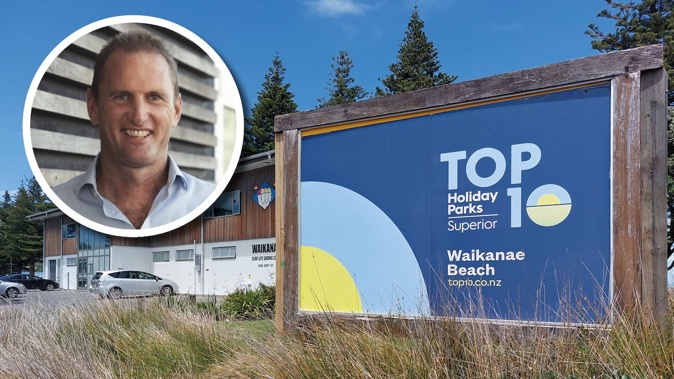
The unseasonal weather Tairāwhiti has experienced since New Year has impacted visitor numbers at the region’s campgrounds, motels and beaches.
Following a period of typical hot summer weather came heavy bouts of rain and winds over the region from late December to early January, leaving beaches covered in woody debris and a section of highway briefly impassible.
It has been 4.7C colder on average in Gisborne than the same time last year, according to MetService.
Gisborne isite staff report there were still quite a few people coming through - overseas visitors and New Zealanders alike.
“But it has been a bit quieter than normal and we put that down to the weather.”
Patronage at the Waikanae Beach Top 10 Holiday Park has traditionally been a yardstick by which the summer season can be judged.
Gisborne Holdings Ltd chief executive Richard Searle said the holiday park had a good start to December because of the warm weather, but a shift in weather after Christmas had meant a slower camper booking rate.
“We’ve had some cancellations and delays to travel plans, and the impact is ongoing,” Searle said.
“We were down around 15% in camper patronage over peak season.”
People have still been camping at the Waikanae holiday park, but numbers have dropped by as much as 15% on what's usual for this part of summer. Photo / Murray Robertson
Moteliers the Gisborne Herald spoke to said it had been quiet since New Year.
“It’s been very quiet, the quietest I’ve known in three years,” said one motel manager, who declined to be identified.
Another motel manager described the season as “patchy”.
“We’ve had a lot of cancellations due to the weather,” she said.
“People get nervous about coming to Gisborne. They’re scared they’ll get stuck here.”
A third manager said they were fine over Christmas and around New Year due to the Rhythm and Vines music festival and thousands of young people it brought to the district.
“But it’s certainly died off over the past two weeks because of the weather.”
The council has handled fewer permits for summer camping than in the past four years.
So far this summer the number stands at 1039 permits received by January 14.
Last year’s permit number to the same date was 1299, it was 1112 in 2023 and 1688 in 2022.
The much-cooler-than-usual temperatures, sizeable swells and previous water health issues have reduced beach-going numbers. Surf lifeguards report quieter times than they expected over summer so far. Photo / Murray Robertson
Paid surf lifeguard supervisor Tyler Ranger said beach numbers had definitely been down on what they were expecting.
“The weather has been a bit cooler than expected, you’ve had water quality issues at the city beaches and the storms have brought some big surf on occasions - notably in the past week with three metre-sized surf at Wainui and about the same in town,” Ranger said.
The swell on the beaches had since dropped off.
Gisborne's beaches have not had as many people as usual on the sands so far in 2025. Apart from surf lifesavers in training, there were few people in sight on Tuesday afternoon. Photo / Murray Robertson
“Fortunately, people who have to come to the beach have really known their limits and listened to lifeguards’ advice.”
While it has been notably cooler than usual here, the NZ Herald reported that warm temperatures were on the way for the latter half of January, with subtropical air and rain expected to descend over New Zealand through to March.
The National Institute of Water and Atmospheric Research (Niwa) said a low-pressure system over the Tasman Sea would “act like a gear to bring warm temperatures down from the tropics” late in the month.
Take your Radio, Podcasts and Music with you









